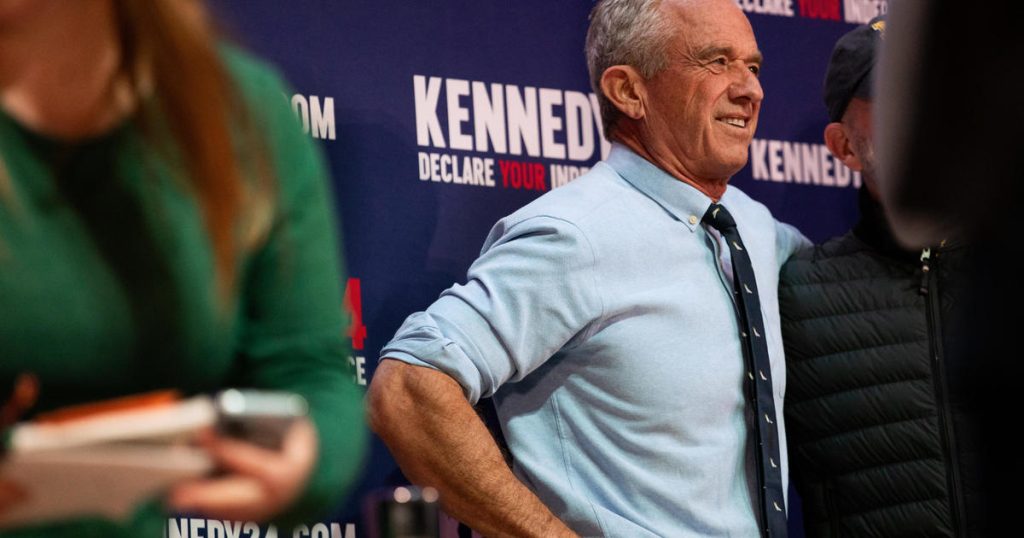Robert F. Kennedy Jr. is expected to announce his running mate on Tuesday, a crucial step in his campaign for the presidency as an independent candidate. However, a setback has emerged in Nevada, where the campaign may need to start collecting signatures from scratch due to a technicality regarding the vice presidential candidate’s name on the petition. Nevada’s rules require both the presidential and vice presidential candidates’ names to be included on the petition, which was not done by Kennedy, rendering the signatures collected in the state invalid. Despite this setback, there is still time for the campaign to gather new signatures before the deadlines in July and August. Kennedy’s campaign has not yet submitted the signatures to the Nevada office for verification.
Kennedy’s campaign faces challenges in gaining ballot access in various states, with each state having different requirements for independent candidates. Currently, Kennedy is confirmed to be on the ballot in Utah, but other states like New Hampshire and Hawaii also have specific rules regarding the naming of a vice-presidential candidate before ballot access can be granted. It remains uncertain how signatures collected in states with similar requirements will be affected by the Nevada setback. The super PAC supporting Kennedy, American Values 2024, initially planned to spend millions on collecting signatures for ballot access but faced a complaint from the Democratic National Committee alleging illegal collusion with Kennedy’s campaign. The PAC has since redirected its efforts to counteract interference from major parties.
In Nevada, the secretary of state’s office issued a memorandum to all independent presidential candidates clarifying the requirements for filing with the office, emphasizing the need for both presidential and vice presidential nominees to be named in the filing. While major parties traditionally announce their vice presidential candidates close to the convention, independent candidates like Kennedy must designate a running mate earlier in order to meet state ballot access requirements. With important deadlines approaching in July and August, Kennedy’s campaign must act swiftly to rectify the situation in Nevada and secure ballot access in other states that have similar rules.
The unique challenges faced by independent candidates like Kennedy highlight the complexities of the U.S. electoral system, where major parties have established processes for nominating candidates but alternative candidates must navigate a variety of state-specific rules to gain ballot access. Kennedy’s campaign has garnered support from various states, including Hawaii where a party has been established to nominate him as the presidential candidate on the ballot. However, the need for a vice-presidential candidate in states like New Hampshire and Hawaii underscores the importance of strategic planning and adherence to state regulations in order to successfully secure ballot access.
As the campaign continues to navigate these obstacles, the announcement of Kennedy’s running mate will be a crucial step in moving forward with ballot access efforts in various states. The implications of the setback in Nevada and the response from the campaign and supporting PAC underscore the challenges faced by independent candidates in an electoral system dominated by major parties. With deadlines approaching and the national conventions for major parties on the horizon, Kennedy’s campaign must address these hurdles quickly and strategically to maximize its chances of appearing on the ballots in key states for the upcoming election.


